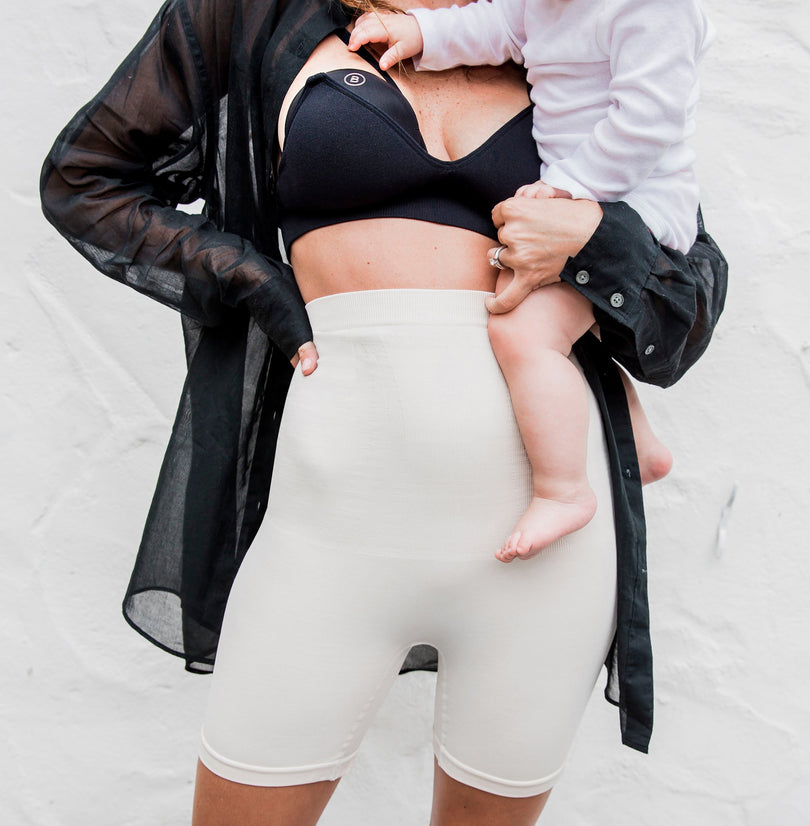Most moms-to-be love tracking their babies’ growth and are often anxious to find out which fruit or vegetable their little one most resembles at the end of each week. There’s a little less enthusiasm about tracking one’s own physical changes, though. And only someone who’s been pregnant can tell you just how far beyond shape and size those changes go. Joints become loose, gas and heartburn are constant companions, and vital organs get displaced in ways you never thought possible. For many moms, the hardest changes may not be visible at all, and while most women expect the challenges of covering an expanding belly or dealing with indigestion, few expect to have to deal with potentially debilitating back pain. But surveys in Europe and the United States suggest that about half of pregnant women experience back pain at some point during the nine months that they carry their bundles of joy. The good news is, there are lots of ways to cope with it, and even some things you can do to try to prevent it.

Where does back pain come from?
There are plenty of causes of back pain, but in pregnancy, one big culprit stands out: A hormone called relaxin. When I first heard of relaxin, I learned it was necessary for loosening muscles and ligaments in preparation for childbirth, so I assumed my joints would not start getting looser until the third trimester. As it turns out, relaxin has lots of important roles in early pregnancy, such as preparing the lining of the uterus for implantation, so its levels peak during the first trimester and stay high throughout pregnancy. That means connective tissue can start loosening up as early as the first trimester, leaving the joint where the spine meets the pelvis less supported than normal for quite a long time. But, while every pregnant woman experiences a rise in relaxin, they don’t all experience back pain, so what else contributes to the pain? The list is pretty predictable. According the
American College of Oncology and Gynecology (ACOG), contributors to back pain in pregnancy include weak abdominal muscles, weight gain, a growing baby putting pressure nerves in the pelvic area, bad posture, and stress.
Back pain in pregnancy can sometimes be serious.
Any back pain in pregnancy is worth your healthcare provider’s attention, but there are a few signs that something worse is going on, such as arthritis or preterm labor.
WebMD suggests notifying your doctor or midwife immediately if the pain suddenly increases in severity, becomes rhythmic, is accompanied by tingling in your arms and legs, or if you also have a hard time urinating.
What can you do once you have back pain?
There are several ways to deal with back pain in pregnancy.
WebMD recommends exercising, treating with heat and cold, and trying support hose. There is also some evidence that acupuncture and chiropractic care may help. According to a recent
analysis that looked at ten clinical trials, however, the evidence supporting the use of massage or chiropractic for pregnancy-related back pain is pretty messy and not all that convincing. But just because the data isn’t that great doesn’t mean you can’t try it. Ask your doctor or midwife about it first though.
Can back pain be avoided in pregnancy?
Clearly, increases in relaxin can’t be avoided, and neither can the growing baby, but there are things you can do to try to prevent back pain. The first can begin before pregnancy—strengthen your muscles, especially your abdominal muscles. A
recent analysis of eleven different studies found that women who exercised had small, but significant reduction in the risk of developing back pain during pregnancy. Even once pregnancy is well underway, you can still strengthen your core. Just look for
pregnancy-safe exercises. I personally recommend prenatal yoga and swimming laps. Because relaxin kicks in so early, once you’re pregnant, adopt some back-protecting rules to live by. ACOG recommends squatting to lift things rather than bending over, avoiding high-heeled shoes, and sleeping on your side rather than your back or stomach. Try to be aware of your posture, be good to your changing body and careful with those loosening joints.
BLANQI SUGGESTIONs FOR EASING BACK PAIN






